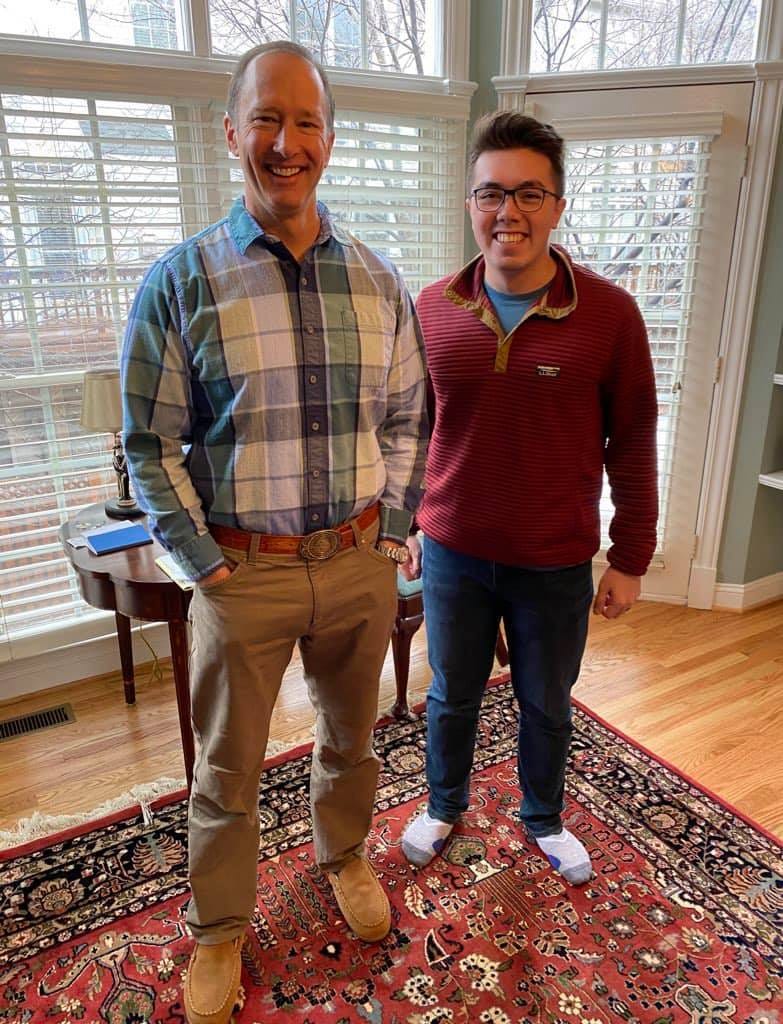Short month, short newsletter
Grateful for a time of rest before MW heads to Hawaii and I start prototype.
Hi all,
MW and I graduated from our submarine officers’ school, left Groton, and now we’re spending a week in Harker’s Island, NC enjoying a little bit of vacation time before we go our separate ways for much of 2021.
On our way here, we stopped in Annapolis for a few days to spend some time with MW’s sister, MB, who is grinding through another semester at the Naval Academy. Whenever we’re near Annapolis/DC, there are a bunch of people we’d like to see. This time, we were able to have just a few very pleasant visits with friends and mentors, like CAPT (ret.) Bill Ostendorff, a former submarine captain, NRC commissioner, and one of my USNA political science teachers; and CAPT (ret.) Scott Farr, former E/A-18 pilot, Navy Liaison to the House of Representatives, fellow Alaskan, and my first boss after I graduated from USNA.


Now we’re at a little house on Harker’s Island, which is beautiful. Just reading, cooking, and taking care of some administrative things for MW’s upcoming move to Hawaii. We’ll drive back to Charleston on Sunday.

Since January, some books I’ve read are:
David Blight, Frederick Douglass: Prophet of Freedom. Incredibly in-depth and interesting biography of a historical figure I’d never learned much about before. Recently I’ve noticed that people really seem to enjoy citing random phrases from Douglass to support their political agendas — that is, to imply that the famous abolitionist would support whatever contemporary idea they have about politics or society. Faced with the complexity of Douglass’s life and thought, I think that becomes really hard to do, and reading this biography would be a good way to inoculate oneself against those kinds of generalizations. (I guess that principle probably applies to most out-of-context quotes from historical figures, now that I’m thinking about it.)
W.E.B. Dubois, The Souls of Black Folk. I learned about Dubois a little bit in my civil rights history class at the Naval Academy, but had never read anything of his at great length. His essays here (written in 1903) contain some details from the time period that I do not fully grasp, but most of his reflections on the challenges of dealing with historical racism are unfortunately very relevant today. I think if those participating in current discussions about racism in America endeavored to gain just a bit of the historical and sociological awareness that Dubois lays out here, the tone and tenor of our conversations would be markedly different.
Erik Larson, The Splendid and the Vile (still working on this one). This is really quite good, especially in its vivid examination of Winston Churchill’s personal leadership style. I took a break around page 200 and I’m looking forward to finishing it eventually.
Marilynne Robinson, Gilead. For a variety of reasons, I have a hard time trusting overtly theological books — especially because it seems like every few months another one of the Christian authors or pastors I previously enjoyed learning from turns out to be a fraud, a sellout, or an evil maniac. So Gilead, part-novel, part extended theological essay, was deeply refreshing. This fictional letter from a 77-year-old (!) Methodist minister to his seven-year-old son, describing his family history and his life with God, is one of the best, most honest, most profound pieces of writing I have ever read. Whether it was supposed to or not, Gilead strengthened my faith in Christ, in the gospel, and in some ways, in the American church.
MW has been reading Anxious People (Frederick Backman) and Six Frigates (Ian Toll).
Here’s a passage I really liked from Gilead (pp. 209-210):
This morning a splendid dawn passed over our house on its way to Kansas. This morning Kansas rolled out of its sleep into a sunlight grandly announced, proclaimed throughout heaven—one more of the very finite number of days that this old prairie has been called Kansas, or Iowa. But it has all been one day, that first day. Light is constant, we just turn over in it. So every day is in fact the selfsame evening and morning. My grandfather’s grave turned into the light, and the dew on his weedy little mortality patch was glorious. “Thou wast in Eden, the garden of God; every precious stone was thy covering, the sardius, the opaz, and the diamond.”
While I’m thinking of it — when you are an old man like I am, you might think of writing some sort of account of yourself, as I am doing. In my experience of it, age has a tendency to make one’s sense of self harder to maintain, less robust in some ways.
Why do I love the thought of you old? That first twinge of arthritis in your knee is a thing I imagine with all the tenderness I felt when you showed me your loose tooth. Be diligent in your prayers, old man. I hope you will have seen more of the world than I ever got around to seeing—only myself to blame. And I hope you will have read some of my books. And God bless your eyes, and your hearing also, and of course your heart. I wish I could help you carry the weight of many years. But the Lord will have that fatherly distinction.
Thank you for reading this newsletter and I hope you’re doing well! Talk to you next month.



